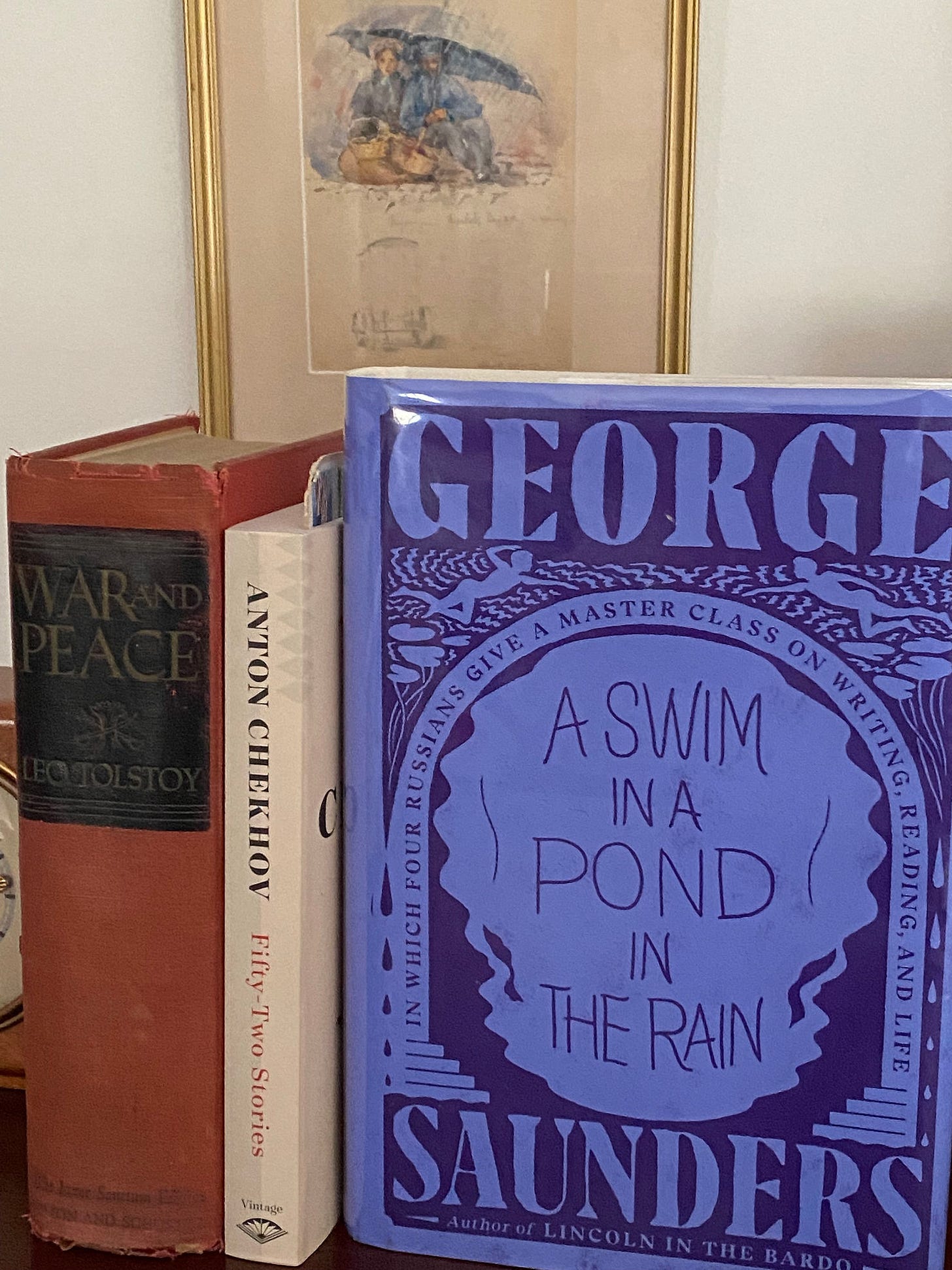Review of A SWIM IN A POND IN THE RAIN
... take the class, do the reading ...
I must introduce this idiosyncratic book with a confession. I was sitting in one of the automatic nap generating red leather chairs in the Harvard Club library in New York with a stack of books on my right. George Saunders’ A Swim in a Pond in the Rain was at the top. I started to read the introduction and was overwhelmed with envy. He introduced his book as an effort to unpack his now legendary short story class, which he has taught for years at Syracuse. Saunders uses classic short stories from Russian greats – in this case Chekhov, Tolstoy, Turgenev and Gogol – as vehicles for illustrating the art of a good short story. His students are all proven but as yet undiscovered writers and. apparently, the class acts as a good farm club for future success in this very American and very difficult literary art. Saunders is considered by many to be our finest short story writer. It all made me feel pretty envious (of the students, of the teacher, of the writer – take your pick) and I had to go through the other books in the stack before I could return and finish the introduction. Having swallowed my pride and sense of insignificance, I finished the Introduction and began his almost page-by-page unpacking of a Chekhov short story, “In the Cart”.
Thank you George … you achieved several things by the time I finished this wonderful book a couple weeks later. You unlocked the genius of Chekhov for me after years of failed solo efforts. You reinvigorated my love of the short story. You confirmed that Turgenev and Gogol are not my cups of tea while Tolstoy simply gets better as I age. Finally, you gave me the courage to begin my next writing adventure. That is a lot to thank a book.
It does not mean I didn’t have problems with the book. As alluded to earlier, I disliked the Gogol story and was indifferent to its importance in the course – a very personal bias. I disliked Turgenev for the same reasons most his students did but understood why he chose it. As for the rest, the stories are great as is his use of them though it all could have been trimmed a bit – an ironic criticism for a great modern short story writer (please read Tenth of December). I thought his “afterthoughts” after each discussion were particularly tedious and were best left in the classroom. I apologize if this is my snarky armchair envy getting in the way of an overall experience that was unique, insightful and very inspiring.
NOTE: after reading the book, it struck me how concentrated Russian Literature is in the 19th century. Except for Pushkin, the great Russian writers produced their greatest material in about a fifty-year time frame in the middle of that century. In a country whose history is one form of despotism after another, this break in the clouds is both reassuring and a warning. It stands as such a bright light amidst so much darkness. So soon after the enlightened genius of Russia flowers in the 19th century, however, there arrives the horrors of the Soviet 20th century and the craven mendaciousness of Putin’s 21st. Was that outbreak of timeless fiction a testimony to the resilience of art or maybe to its ultimate ineffectiveness against greater forces both outside of and within humanity?
A Swim in the Pond in the Rain
(in which four Russians give a master class on writing, reading, and life)
by George Saunders (2021)
390 pages (hardback)


